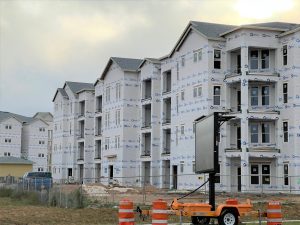While Miami pursues “co-living” units
 One of Florida Senate President Kathleen Passidomo’s priority bills to make housing more affordable for working Floridians is on its way to Governor DeSantis for his expected signature. The “Live Local Act,” SB 102 by freshman Senator Alexis Calatayud (R-Miami) had already passed the Senate unanimously and this past Friday, the Florida House put its stamp of approval on the bill, which now goes to the Governor.
One of Florida Senate President Kathleen Passidomo’s priority bills to make housing more affordable for working Floridians is on its way to Governor DeSantis for his expected signature. The “Live Local Act,” SB 102 by freshman Senator Alexis Calatayud (R-Miami) had already passed the Senate unanimously and this past Friday, the Florida House put its stamp of approval on the bill, which now goes to the Governor.
It is a comprehensive, market-driven plan for attainable housing policies that creates a missing-middle tax exemption for developments that set aside at least 70 units below market rate for affordable housing. The bill would provide incentives for private investment in affordable housing, offer flexible housing regulations that encourage mixed-use development in struggling commercial areas, and prevent local rent controls such as those passed by voters in Orlando. Senator Passidomo has said she’d like to see creative solutions, such as transforming still idle strip malls closed during the COVID pandemic into housing to serve nearby workers.
A Florida Housing Finance Corporation survey found that nearly 1.3 million Floridians spend more than 50% of their income on housing, higher than the 30% guideline to maintain stable housing. The bill invests $711 million dollars toward workforce housing. It would allocate more money in two key programs: $252 million in the State Housing Initiatives Partnership (SHIP) and $259 million for the State Apartment Incentive Loan (SAIL) programs. Another $100 million would be spent for the Hometown Heroes Program for eligible frontline community workers such as law enforcement officers, firefighters, educators, healthcare professionals, childcare employees, and active military or veterans. The bill would nearly double the current year spending for affordable housing.
 Meanwhile in Miami, home of some of the highest rental rates in the country, the city commission is considering easing zoning restrictions to allow co-living developments. Those just out of college or with college-age students will be familiar with this concept. It’s where 4 to 6 people live in a unit, with each having their own locking bedroom and bathroom, and sharing a living room, kitchen, and laundry room. Miami Today reports the city commission is consider a zoning amendment to allow for communal living developments to rise in Miami’s busy central business district, the health district, and Wynwood neighborhood, north of I-395.
Meanwhile in Miami, home of some of the highest rental rates in the country, the city commission is considering easing zoning restrictions to allow co-living developments. Those just out of college or with college-age students will be familiar with this concept. It’s where 4 to 6 people live in a unit, with each having their own locking bedroom and bathroom, and sharing a living room, kitchen, and laundry room. Miami Today reports the city commission is consider a zoning amendment to allow for communal living developments to rise in Miami’s busy central business district, the health district, and Wynwood neighborhood, north of I-395.
Have a great week and call or email us if we can help you navigate Bill Watch or you have other questions. Of course, you are always welcome to stay with us in our home and walk the halls of the Florida Capitol with us!
See you on the trail,
Lisa

